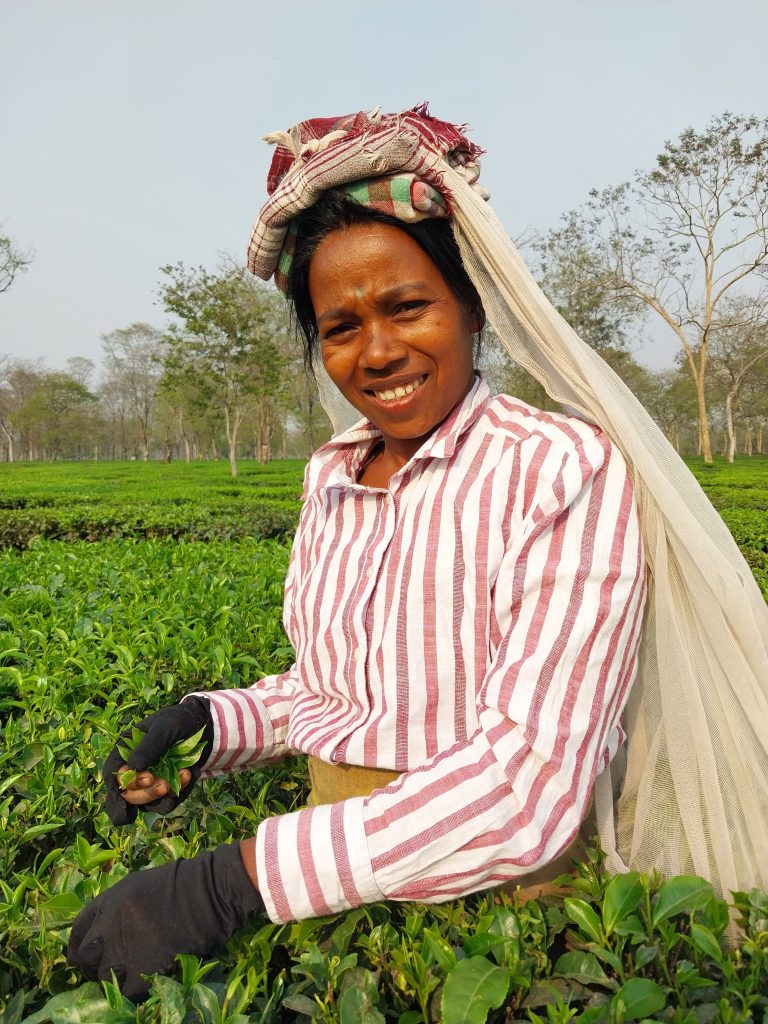In the northern part of West Bengal, a landscape crisscrossed by human habitations, tea gardens and forests is giving rise to human-wildlife conflicts. And, it is generally women, who are paying the price, writes Deepanwita Gita Niyogi

Beneath her ever-smiling countenance, Aalina Nagesia, an Adivasi woman in her 40s, has a troubled past. Aalina, who works at the Sukna forest rest house in Darjeeling district of West Bengal, lost her husband in a tragic incident in 2021.
“After my husband Vijay Beck, who was 38 at that time, was killed in a wild elephant attack, I got a job at the rest house where I carry out mainly housekeeping duty.” The incident happened in the month of December while Aalina’s husband was returning home from work in the evening.
Deaths and serious injuries as a result of human-wildlife conflict is increasing day by day across India. In the northern part of West Bengal of which Darjeeling is a part, a changing landscape crisscrossed by human habitations, tea gardens and forest is giving rise to conflicts.
Living with conflict
Ashes Paul, who works for the West Bengal forest department, explained the crisis in detail touching on the gender aspect. “If women enter forests for firewood collection, which is quite common in the villages, then they are at high risk. Even deaths may occur. In the winter season, when tea gardens are closed for three months, women collect more firewood. However, men either lose their lives or are injured outside forests, and also, while driving away elephants.” Sometimes, there are accidental encounters like the case of Aalina’s husband.

In cases where deaths occur, Rs 5 lakh is paid to families as compensation by the forest department. In normal injury incidents, treatment is arranged for. For permanent disability, Rs 1 lakh is paid. Jobs are also given to the next of kin by the forest department in cases of deaths. That is how Aalina, who used to work in a tea garden, got the job as a forest volunteer at the Sukna rest house in March this year.
In Deoniapara village of Jalpaiguri district, Sapna Ray told the reporter that she has got used to elephants entering the village in search of food. However, Sapna is ever watchful as she has a small son.
While making tea, Aalina reflected on her husband’s death. “He went to his duty that day like other days. My husband used to work at a house construction site. Little did I know that he would lose his life while coming back alone. The incident happened near the New Chumta tea estate.”
She misses her husband, who was a resident of Ranchi, Jharkhand, but settled down with his wife’s family in West Bengal. “I am all alone now even though my sister’s family is there with me. My son also died at infancy,” Aalina said.

Aalina was informed about her husband Vijay’s death around 10 am the next morning. At that time, she received the due compensation.
After her son’s death, Aalina had brought the girl of her brother in-law, who has six children, to live with her. “I have looked after the girl since then, and now, she is 21. She is of great comfort to me. A friend of mine also lost her husband in an elephant attack. Leopard attacks are quite common in tea gardens.”
Aalina’s new job at the rest house has made her an early riser. She gets up around 5.30 am, prepares food and comes by 9.30 am. She leaves for home at 6 pm. “I must be punctual as I am new here.”
Leopards and women
At the Mohurgong and Gulma tea garden near the Sukna forest rest house, Radhika Malpariya took a short break in between tea leaf plucking to explain the situation. “There are leopards inside the tea garden. Many of us feel afraid of them but cannot avoid plucking. Sometimes, drummers are out with drums to scare away the animals who mostly hide in drains or between tea bushes. Attacks have happened.”
In certain geographies, women are more vulnerable to attacks by animals compared to men. This is mainly true of leopards as they live in close proximity to humans.
Researcher Aritra K Shettry has worked closely for many years in north Bengal’s tea gardens studying human-wildlife relationships. According to K Shettry, activities like tea plucking and resource collection, which entails daily visits to the forest, make women more vulnerable to attacks than men.
Lakshmi Kujur has been working for 10 months at Mohurgong and Gulma.“I used to work in other tea estates before but took a break in between,” said the woman whose house lies 15 minutes away. Lakshmi has seen leopards as well as cubs inside drains. But like Aalina, she is a widow and has to earn to look after her family.
“Work starts here at 8 am and continues till 11 am. There is a break from 11 am to 1.30 pm when I go home and come back, and then continue till 4.30 pm,” said Lakshmi. Her daily earning is meagre, at just Rs 250. “My husband was an alcoholic and died a few months ago due to complications.”
Aalina informed that leopard attacks have happened in Simulbari tea garden in Darjeeling district too. In her new role, she earns Rs12,000 a month out of which Rs 30 is spent daily on pickup vehicles. “After my husband’s death, I worked in a tea garden. I have to work to sustain myself. When my husband was there, he took care of me.”
For Aalina, a second marriage prospect is scary. She explained that her husband was not addicted to alcohol like many men she comes across these days. For now, the woman is at her peace. “It is better to work at the rest house where the pay is quite good. Tea gardens don’t pay that much. And then there is the constant fear of leopards.”
Jaideep Singh, who looks after four to five tea estates in north Bengal as a superintending manager, said encounters are mainly accidental when women pluck tea leaves. “Generally, leopards stay away from humans. Sometimes, the women accidentally step on a sleeping animal while working.”
Men, who beat drums, are deployed for safety inside tea gardens. These drummers, two-three in number, accompany a group of 100 women before they get inside tea bushes to chase away leopards.













